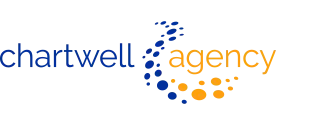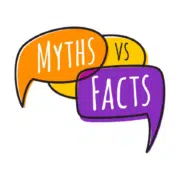Avoid the Rabbit Hole and Do Research Right
Your organization wants to promote an event but has no idea where to begin. Or maybe your company is moving into a new market area or launching a new marketing campaign and you want to see what your competitors have been doing.
It’s time to roll up your sleeves and dive into some research.
This can seem like a daunting task, especially if you don’t have access to sometimes costly resources to expedite the process. As the office manager at Chartwell, I am often tasked with doing behind-the-scenes work for projects, which often involves research in some capacity. On my third day at Chartwell, I was asked to do a media audit for a client and two of its competitors. That was quite the ‘welcome to the company’ moment. After honing my skills for the last several years, here are some tips to ensure you don’t fall down the rabbit hole and end up trapped in Wonderland.
Always Read the Labels.
Develop a clear list of the information you need so your list doesn’t grow too big or too small. Be specific. Keep a spreadsheet. The end of a research project is not the time to find out you’re missing a key component. Nor do you want to have wasted time digging for information that wasn’t necessary. You’ll be more efficient during the process if you spend time preparing and asking questions upfront.
Don’t Be Late for a Very Important Date.
Develop a timeline. Crafting a good list of information will take time. Don’t want to lose your head waiting for a contact to get back to you with vital information because time got away from you.
Be Mad as a Hatter…Within Reason.
Be creative in finding resources. While the internet is obviously a powerful tool, many resources are tucked behind a paywall in the digital world and you may not have easy access. Here are some resources anyone can use:
-
- Your team. When building items like a contact list, always reach out to your team first. Don’t operate in a silo. You may be surprised who has contacts at organizations you need. They may also have subscriptions to publications that have digital access that you can use.
- Public libraries. Some of us grew up going to the library to answer all of our questions and this still rings true today. Conducting a media audit or looking for the date of an announcement? Did you know most libraries have digital access to newspapers and magazines that you would have to pay to use? Many of these can be accessed remotely so you never even have to step into the library – except maybe to get a library card.
- Google. It’s so obvious that it’s gone from being just a search engine to its own verb. Who hasn’t said “Just Google it”? But remember to be creative in your search terms. Don’t just punch in the exact words you’re looking for and give up if nothing comes up. With more companies boosting their Web presence through search engine optimization (SEO), varying your search terms can produce better results. If you already have some information gathered, examine the terms they used and search for those. Don’t be afraid of going past the first page of results. Some of the best hits I’ve found have been several pages deep in the list.
- Social Media. While Facebook and Twitter are meant for social communications, organizations are sharing more and more information that can help direct you to other sources. These sites are especially useful if you are trying to find contact information for reporters and others at news agencies.
Beware of Going Down the Rabbit Hole.
Don’t be afraid to check out relevant resources and explore web pages, but stay focused on the task at hand. It is easy to go from link to link and lose track of what you have been reading and where you have been looking. Keep notes to help you navigate back to places with information you want to examine but may not be useful at the time.
Invite Others to the Tea Party.
If your research project is being used by others, make the time to have your information checked over halfway through. They may point out items you are missing or other avenues of research. This is also helpful if you are struggling to find the information that you need.
Research can be frustrating and time-consuming, but it can also be very satisfying when you strike information gold. From the quick search of a definition to a comprehensive marketing audit, Chartwell conducts a lot of research every day. We work hard to learn about the fields in which our clients work so we can provide the best recommendations to meet their marketing and communications needs.









